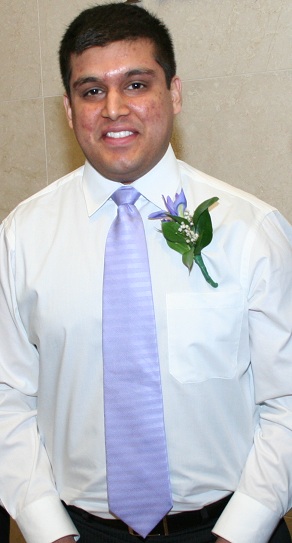Epidemiology and Biostatistics Master’s Program Educates Students in Public Health Research and Design
The Master of Science in Epidemiology and Biostatistics (MSEB) Program at Northwestern University Feinberg School of Medicine offers its students an intensive four-quarter curriculum focused on the design (epidemiology) and analysis (biostatistics) of research that considers the health problems plaguing large populations. Feinberg’s MSEB Program uniquely combines the study of epidemiology and biostatistics, which are typically taught separately.
“Integrating the two disciplines permits us to train epidemiologists who have a strong applied quantitative background,” says Mercedes Carnethon, PhD, associate professor in the Department of Preventive Medicine and director of the program. “Conversely, students who focus on biostatistics and statistical analysis have a strong foundation in study design as a result of their training in epidemiology.”
Part of the Program in Public Health in the Department of Preventive Medicine, the MSEB Program attracts two types of students: post-doctoral research scholars with backgrounds in medicine, nursing, basic science, or the social sciences who wish to expand their research training, and pre-doctoral science or research majors who are interested in serving as statistical analysts or study project coordinators. Accordingly, students are placed on either the investigator or statistical analyst track, concentrating on a slightly different curriculum based on their designation.
 |
| Recent MSEB Program graduate Munir G. Pathak was drawn to Feinberg because of the research mission of the institution, as well as the program’s dual focus. |
All students share a common three-quarter core series in epidemiology and biostatistics, a workshop-style course addressing common challenges in research design, and training in the ethical conduct of research. Post-docs receive additional training in scientific writing and grant preparation, while pre-docs hone in on sophisticated statistical methods, data management, and programming.
“Electives provide additional exposure to topics such as scientific writing and grant preparation, advanced statistical methods, survey design, behavioral medicine, cardiovascular disease, injury epidemiology, and infectious diseases,” says Carnethon.
With only 14 students in the program (12 full-time and two part-time), students benefit from close contact with department faculty who have ongoing research programs and collaborations across the University. This personal experience ensures that graduates are well-prepared to direct or support public health and clinical research studies, seek academic faculty positions and grant funding in fields related to population science, or serve as statistical analysts in academia, industry, or government.
Recent graduate Munir G. Pathak, MS ’11, joined the program soon after earning a Bachelor of Science degree in Industrial Engineering. He wanted to pursue his interest in healthcare, while zeroing in on macro level health. Pathak was drawn to Feinberg because of the research mission of the institution, as well as the program’s dual focus – an offering he didn’t find elsewhere.
“The MSEB Program offered me the opportunity to acquire groundwork in epidemiology, the underlying science of public health; at the same time, I was able to gain rigorous training in statistical concepts and applications.”
Pathak hopes to find a public-sector population health position with a government agency like the Federal Drug Administration or Centers for Disease Control and Prevention. His future plans also involve pursuing a PhD in healthcare management and economics, and later, a career in academia where he can direct his research at the intersection of population health, economics, and policy.
“Through this program, I learned about a world of healthcare that goes beyond the medicine. My experience at Feinberg reshaped my long-term career goals and interests,” he says.






